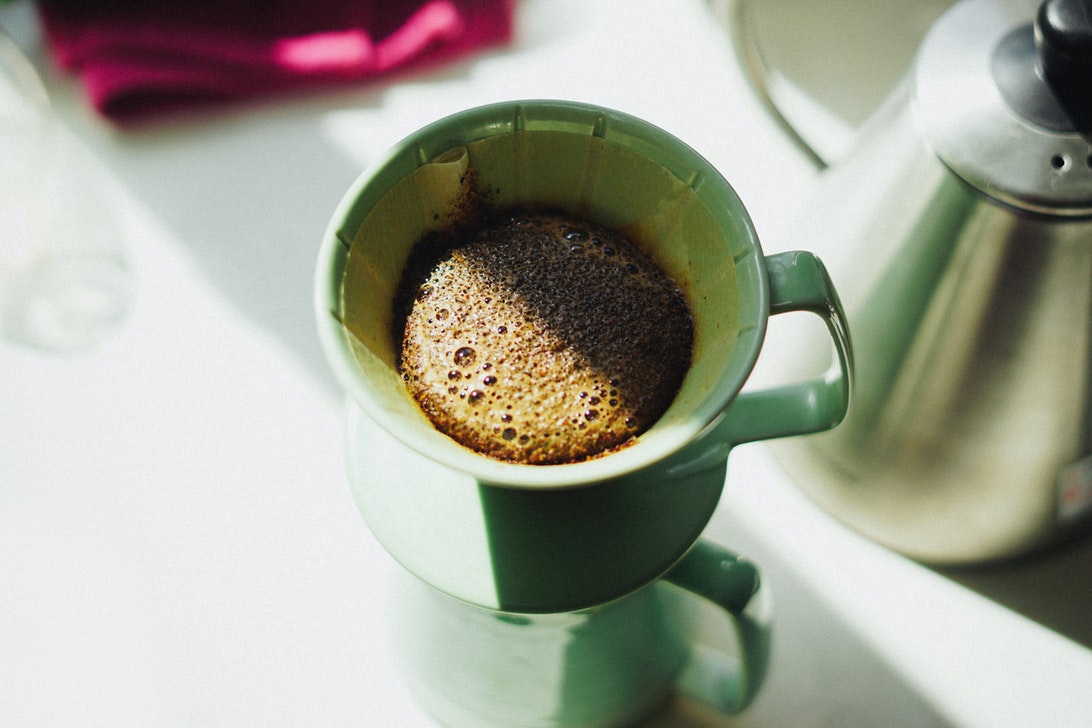How many cups of coffee are suitable for a day? The benefits of drinking coffee?

Professional coffee knowledge exchange more coffee bean information please follow the coffee workshop (Wechat official account cafe_style)
Make a cup of coffee at work, smell mellow aroma, bitter aftertaste, with the help of caffeine to awaken work passion, seems to be a good choice. So, do you know when coffee is the most refreshing? How many cups of coffee should I drink in a day? In addition to dispelling fatigue, what other "surprise" effects can coffee bring to our bodies? The editor of China Economic Network has collected practical knowledge about coffee drinking for office workers. If you like it, come and have a look.
No matter how good the coffee is, from a health point of view, the amount of coffee must be controlled. How much coffee does a normal adult drink a day? The editor of China Economic Network has compiled the relevant knowledge points for you for the reference of the "Aika people".
How much coffee do you drink? It is not accurate to measure by "cup".
For the recommended consumption of coffee, the traditional practice is usually calculated by cup, as in some articles, "do not drink × cup of coffee a day" or "recommend drinking × cup to × cup of coffee a day". However, what is the capacity of "one cup"? There is still a lack of common uniform measurement standards in the industry. According to the editor of China Economic Network, the so-called cup of coffee can be divided into "large cup", "medium cup" and "small cup" in brand chain stores. The private coffee cups used in private coffee brewing are of different sizes, shapes and capacities.
A study of caffeine and caffeoyl quinic acid (CQA) content in European coffee published by researchers at the University of Glasgow in 2014 shows that not only are containers different, but "one cup" is also a measure of great change in terms of composition. Under different brewing conditions, the caffeine-CQA ratios of each sample range from 0.70 to 11, it is difficult to say that a few cups of coffee are healthy.
According to a study published in the Journal of Analytical Toxicology, 16 ounces of coffee from a famous brand contains 100 milligrams more caffeine than other coffees of the same amount. Even for the same type of coffee of the same brand, the caffeine content varies from bottle to bottle, up to 300 mg.
In view of this, the editor of China Economic Network suggested that we might as well jump out of the traditional thinking of using "cups" to measure coffee consumption and look for a more accurate scale.
Calculate caffeine intake: no more than 300 milligrams per day
The most important ingredient in coffee is caffeine. For the human body, the right amount of caffeine can reduce muscle fatigue, promote digestive juice secretion, but also promote kidney function. But eating too much can lead to caffeine poisoning, increase the risk of heart disease, accelerate calcium loss, and lead to osteoporosis. It can be described as caffeine for success and caffeine for failure. The editor of China Economic Network warns that it is critical for office workers to control their daily caffeine intake if they want to enjoy coffee healthily. Knowing the following figures may help you gain a more specific understanding:
10 grams of caffeine can cause death.
It is generally believed that the lethal dose of caffeine is about 10 grams. In theory, it's the equivalent of a person drinking 75 8-ounce cups of coffee in just a few hours. In reality, it is obviously impossible to drink so much liquid at once, even if there is no caffeine, your life will not be saved.
But even if the intake of caffeine is small, it may still have negative effects. A study by the University of Queensland in Australia, which collected data on nearly 45000 people between 1979 and 1998, found that men who drank more than 28 cups of coffee a week were 56 percent more likely to die from various causes before the age of 55, and more than doubled for women. Carl Lavie, the expert who led the study, said further research was needed, but suggested that people should eat caffeine in moderation.
300 mg is the upper limit of daily intake.
Europe and the United States have specially formulated guidelines on caffeine intake, advising children aged 4 to 6 not to exceed 45 mg a day, 7 to 9 years old to be limited to 63 mg, 10 to 12 years old to be limited to 85 mg, and normal adults to consume caffeine at 300 mg per day.
Excessive intake of more than 400 mg can lead to poisoning
It is generally believed that low doses of caffeine are harmless to the body, but can pose a threat to people who are sick or have psychological problems. When caffeine intake exceeds 400 mg at a time, it can cause tremor, rapid heartbeat, nausea, anxiety, dizziness, insomnia, and even heart failure. Some people who are sensitive to caffeine can be more serious, and excessive intake by pregnant women can also lead to pregnancy complications-there are cases of caffeine poisoning around the world.
The American Heart Association has reported that more than 400mg of caffeine a day can cause poisoning in adults, while children under 12kg drink 2.5mg of caffeine per kilogram of body weight. 50 milligrams of caffeine a day can cause poisoning in a 6-year-old child and 100 milligrams of caffeine can cause poisoning in a 12-year-old child.
Self-estimation: did you overeat in a day?
The data show that the content of caffeine depends on the variety of coffee and the way it is made. For example, Robusta coffee beans contain twice as much caffeine as Arabica, while filtered coffee contains 30 per cent more caffeine than espresso (Expresso). Light coffee contains more caffeine than espresso, which means that the longer the coffee is exposed to water, the higher the caffeine content.
According to a report by the Poisons Committee of the British Food Standards Agency, a cup of about 237 milliliters of instant coffee contains 60-80 milligrams of caffeine, while follicular coffee can reach 135 milligrams.
Decaffeinated coffee is not decaffeinated, but contains less caffeine and contains five times less caffeine than regular instant coffee. A large Starbucks cup (12 ounces, about 340 milliliters) of decaf coffee usually contains 3-18 milligrams of caffeine
Important Notice :
前街咖啡 FrontStreet Coffee has moved to new addredd:
FrontStreet Coffee Address: 315,Donghua East Road,GuangZhou
Tel:020 38364473
- Prev

What is Nordic baking? What are the characteristics of Nordic baking? The source of Nordic baking?
Professional coffee knowledge exchange more coffee bean information please follow the coffee workshop (Wechat official account cafe_style) what is Nordic roasting, is the coffee roasted very shallow? Light baking is only the final baking chromaticity of Nordic baking. But Nordic baking cannot be explained only by shallow baking; otherwise, both traditional Japanese baking and Euramerican baking can produce shallow baking, so why not
- Next

Practical skills for coffee brewing | how to know the extraction of coffee by tasting?
Professional coffee knowledge exchange more coffee bean information please follow the coffee workshop (Wechat official account cafe_style) this article will be based on the basic theory of coffee extraction, as well as tasting coffee in three cases: over-extraction, under-extraction and ideal extraction. Extraction can be said to be the most important but least understood part of coffee brewing. Extraction represents everything. If there is no extraction or even no
Related
- Beginners will see the "Coffee pull flower" guide!
- What is the difference between ice blog purified milk and ordinary milk coffee?
- Why is the Philippines the largest producer of crops in Liberia?
- For coffee extraction, should the fine powder be retained?
- How does extracted espresso fill pressed powder? How much strength does it take to press the powder?
- How to make jasmine cold extract coffee? Is the jasmine + latte good?
- Will this little toy really make the coffee taste better? How does Lily Drip affect coffee extraction?
- Will the action of slapping the filter cup also affect coffee extraction?
- What's the difference between powder-to-water ratio and powder-to-liquid ratio?
- What is the Ethiopian local species? What does it have to do with Heirloom native species?

